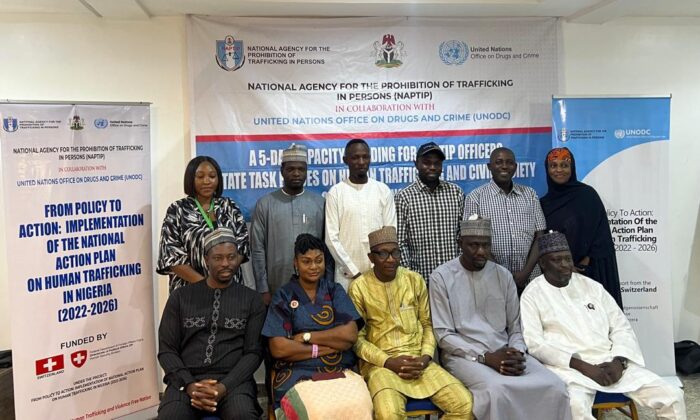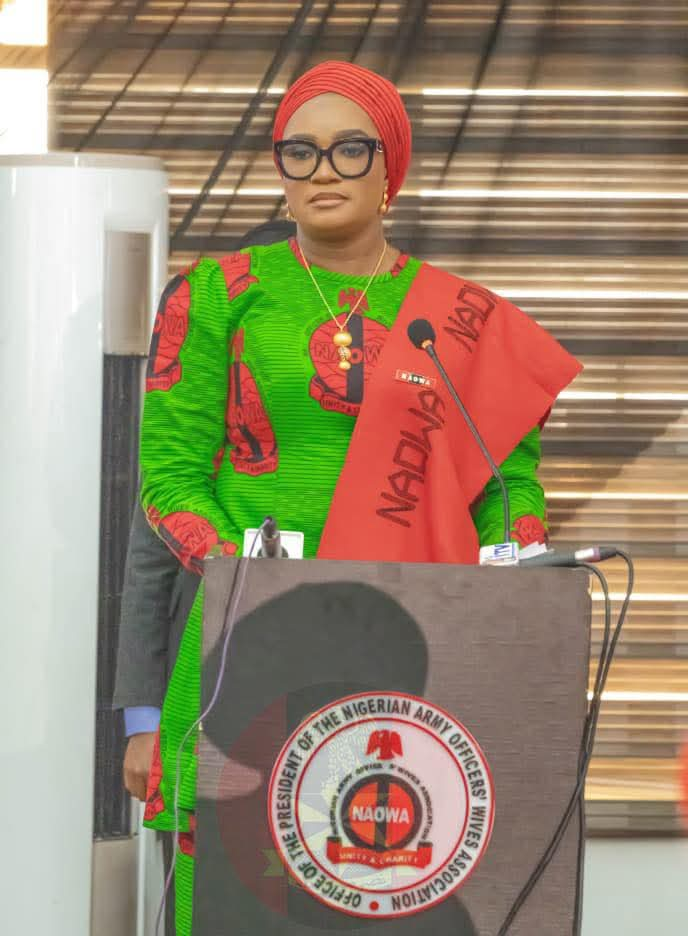The National Agency for the Prohibition of Trafficking in Persons (NAPTIP), in collaboration with the United Nations Office on Drugs and Crime (UNODC), has commenced a five-day capacity-building workshop in the North East. The workshop is designed for NAPTIP officers, civil society organizations (CSOs), and state task force members, focusing on harmonized data collection tools as part of the 2022-2026 National Action Plan (NAP) on Human Trafficking.
The project, From Policy to Action, is co-funded by the Swiss Government and implemented by NAPTIP and UNODC. Speaking during the event, Mr. Olatunji Rasheed, represented NAPTIP’s Director General, Binta Bello, emphasized the critical role of reliable data in combating human trafficking. According to him, accurate data served as backbone for effective strategies, enabling stakeholders to track trends, allocate resources, and implement evidence-based solutions.
Rasheed also noted the recent review of NAPTIP’s data collection tools, which now included disability indicators to ensure inclusive and standardized reporting across platforms. Participants were encouraged to actively engage, as their roles in data collection, repository management, and reporting are pivotal to the National Reporting Hub.
Ms. Ifeoma Kenebi, representing the UNODC Country Representative, highlighted the importance of the workshop in refining the reporting framework and tools to achieve the shared goal of eradicating human trafficking. She urged participants to focus on understanding the technical aspects of the tools, ethical considerations, and best practices for data sharing, while commending the Swiss Government for its support.
The training has already been held in other geopolitical zones, including the North Central, North West, and South South, with positive outcomes. The North East session is expected to yield similar results, enhancing national response mechanisms and improving coordination among agencies.
NAPTIP’s Zonal Commander, Mohammed Barde, underscored the workshop’s objective of equipping participants to effectively track, monitor, and respond to trafficking cases. He stressed the importance of accurate reporting in protecting victims’ rights and dismantling trafficking networks.
Abdulganiyu Abubakar, National President of the Network Against Trafficking, Abuse, and Labour (NACTAL), represented by Umar Gambo, called for stronger partnerships among stakeholders. He emphasized that the collective use of these tools would lead to more evidence-based interventions, fostering a unified approach to combating human trafficking in Nigeria.
Participants were encouraged to step down the training within their organizations, ensuring uniformity and sustainability in the fight against human trafficking.





